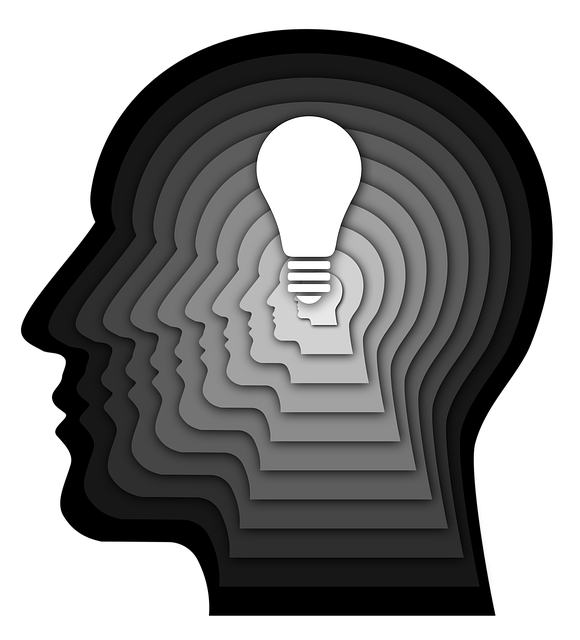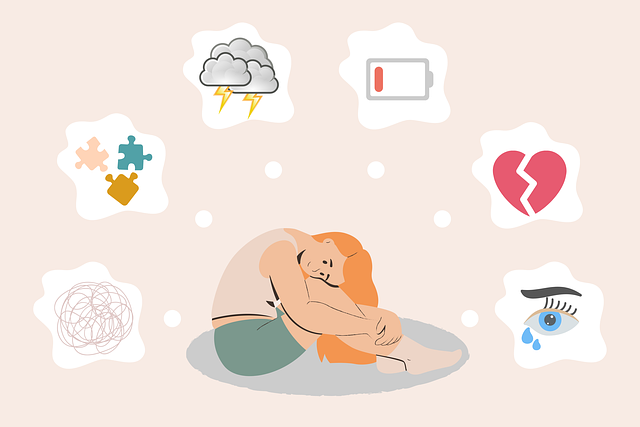Emotion regulation techniques are key in addressing adult anxiety, a growing concern in today's fast-paced society. Effective therapy for adults with anxiety teaches individuals to understand and manage their emotional responses, breaking cycles of anxious thoughts and behaviors. Techniques like mindfulness practices and cognitive reappraisal empower people to increase awareness, detach from overwhelming feelings, and adopt realistic, positive perspectives, improving emotional well-being. Incorporating these skills into daily life supports long-term mental health awareness and reduces the need for intensive interventions. By identifying triggers and practicing stress management, individuals can effectively manage anxiety and improve their quality of life.
Emotion regulation techniques are powerful tools that can significantly impact adult anxiety. This article delves into understanding emotion regulation and its profound effects on managing anxiety, offering insights into effective strategies. We explore common techniques used in therapy for adults with anxiety, providing practical guidance on implementing these skills in daily life for long-term success. By mastering emotion regulation, individuals can navigate challenges with resilience, fostering improved mental well-being.
- Understanding Emotion Regulation and Its Impact on Adult Anxiety
- Common Techniques for Teaching Effective Emotion Regulation
- Implementing These Techniques in Daily Life: Strategies for Long-Term Success
Understanding Emotion Regulation and Its Impact on Adult Anxiety

Emotion regulation techniques play a pivotal role in addressing and managing adult anxiety, which has become a prevalent concern in today’s fast-paced world. Anxiety disorders significantly impact an individual’s ability to function daily, making effective coping mechanisms crucial for mental wellness. Therapy for adults with anxiety often focuses on helping them understand and navigate their emotional responses. Through various techniques, individuals learn to recognize and manage intense emotions, breaking the cycle of anxious thoughts and behaviors.
Mental Wellness Coaching Programs Development emphasizes the importance of teaching clients practical skills to regulate their emotions. Risk Management Planning for Mental Health Professionals is a critical aspect of ensuring these coaches are equipped to handle diverse client needs while maintaining cultural sensitivity in mental healthcare practice. By fostering emotional resilience, individuals can enhance their overall mental wellness and lead more fulfilling lives, free from the constraints of excessive anxiety.
Common Techniques for Teaching Effective Emotion Regulation

Teaching effective emotion regulation is a crucial component of therapy for adults with anxiety, offering them valuable tools to manage their emotional well-being. Common techniques include mindfulness practices, such as deep breathing exercises and meditation, which help individuals become more aware of their emotions and responses. By focusing on the present moment, these practices enable people to detach from overwhelming feelings and gain a sense of calm.
Additionally, cognitive reappraisal is a widely used strategy. It involves challenging negative thoughts and replacing them with more realistic, positive ones. This technique encourages individuals to change their emotional response by altering their perspective on a situation, which can be particularly effective in managing anxiety-related emotions. Incorporating these skills into daily life through structured exercises and real-life applications supports long-term mental health awareness and advocates for a proactive approach to emotional well-being, potentially reducing the need for intensive interventions like those suggested in Mental Health Policy Analysis and Advocacy.
Implementing These Techniques in Daily Life: Strategies for Long-Term Success

Implementing emotion regulation techniques in daily life is a crucial step towards building resilience and managing anxiety effectively. The first strategy involves identifying triggers that often set off emotional responses. This self-awareness allows individuals to anticipate and prepare for potential challenges, enabling them to respond calmly instead of reacting impulsively. For instance, someone prone to anxiety in social settings can mentally rehearse conversation starters or practice deep breathing exercises beforehand.
Additionally, incorporating practices like mindfulness meditation and positive thinking into daily routines can significantly enhance emotional well-being. These techniques help individuals stay grounded in the present moment, reducing reactivity to negative emotions. Regular participation in stress management workshops or engaging with a support organization can also foster resilience by providing valuable tools and connections. Over time, these strategies become second nature, facilitating better emotion regulation and improved quality of life, especially for those seeking therapy for adults anxiety.
Emotion regulation techniques offer a powerful tool in managing and reducing adult anxiety, enabling individuals to lead more fulfilling lives. By understanding the impact of emotions on our mental health and utilizing evidence-based strategies, such as mindfulness, cognitive reappraisal, and acceptance, we can foster better emotional resilience. Implementing these techniques in daily routines requires dedication and practice, but the benefits extend to various aspects of life, ultimately enhancing overall well-being and quality of life for those seeking therapy for adult anxiety.












